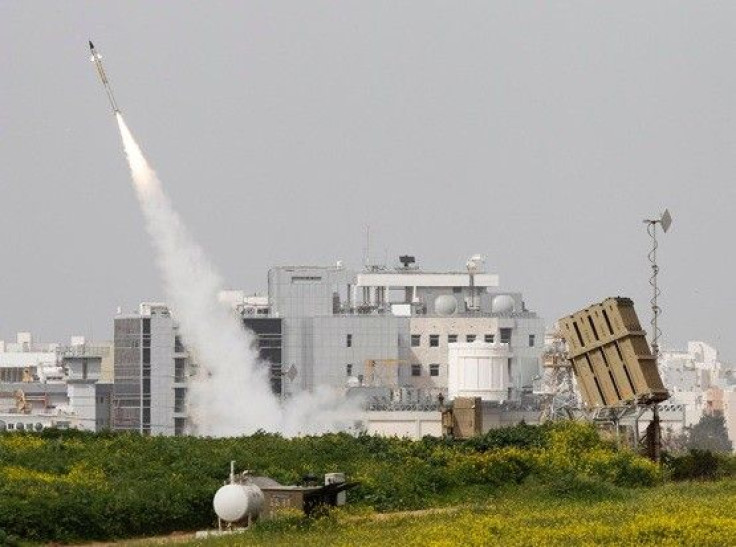Has Israel’s Iron Dome Missile System Prevented War In The Middle East?
ANALYSIS

The recent flare-up in violence between Israel and Palestinian militants in Gaza is just one of a seemingly endless number of skirmishes between the two long-time enemies.
Since last Friday, over 200 rockets have been launched from the occupied territory into southern Israel, prompting retaliatory airstrikes that have killed around 26 suspected militants and at least two civilians, according to Egyptian mediators.
As the exchange escalated, reports began to circulate that Israel may mobilize its army and invade Gaza as it did in 2008, sparking a bloody land battle that cost over two thousand lives.
But while this pattern of rocket fire and counter airstrike followed a familiar routine, a new weapon has quietly altered the Israeli response and may possibly change the future of all military exchanges between the two combatants.
The multi-billion dollar Iron Dome missile defense system managed to intercept a significant portion of short-range rockets fired into Israel -- on Monday alone they destroyed 23 of the 65 rockets fired from Gaza.
The last Israeli airstrike occurred on Monday, after which a small salvo of around six rockets was fired by Gaza militants into Israel.
No long-range rockets were fired and Israel did not respond, breaking the routine of mindless strike and counter-strike.
The system essentially bought the country's otherwise harried leaders time to assess the threat and decide on an appropriate response, without the distressing images of wounded and dead Israelis forcing them to launch head-long down the road to war.
In the southern Israeli city of Beersheba, according to the Wall Street Journal, Israelis were back to work, going about their daily lives only minutes after taking cover from incoming missiles.
Without Iron Dome, the procedure would be to declare a state of emergency on the home front,'' said Doron Nachum, a military-affairs correspondent for the Israeli news website Nana10.
Everything you see around you would stop. If, until now, 200 rockets have been fired, it would be impossible to continue with the daily routine,'' the WSJ reported him as saying.
The Iron Dome system, built by Israel's Rafael Advanced Defense Systems, has been deployed since March last year.
Currently, three experimental Iron Dome batteries are installed in the south around Ashkelon, Ashdod and the Negev desert capital of Beersheba, with a fourth due in the next few weeks.
There are also plans to install further batteries along the Lebanese border to the north, with experts saying 13 will be needed if Israel is to provide a nationwide umbrella of protection.
Critics however say the cost of the project is too high, with Israel spending billions of dollars on high-tech equipment to counteract far cheaper enemy rockets.
There are also concerns that the cost of Iron Dome could detract from other military systems, such as strike aircraft capable of repelling a theoretical Iranian attack.
This system could also have unintended consequences.
It could undermine any effort on Israel's part to seek a long-term solution to the Palestinian crisis, shielding ordinary Israelis from not only rocket attacks, but the privations suffered by the people on the other side of their borders.
It could also prompt militants to turn back to a wave of far deadlier suicide bombings as they become desperate to strike at a seemingly impervious enemy.
But whatever the long-term result, for now Iron Dome appears to be working.
And while critics balk at the expense - the cost of another war paid in Gazan blood and Israeli reputation makes Iron Dome cheap at double the price.
© Copyright IBTimes 2024. All rights reserved.











